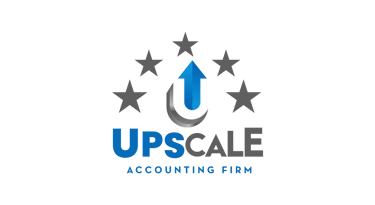Understanding Tax Knowledge: A Comprehensive Overview
Tax knowledge is crucial for individuals, businesses, and policymakers alike, as it directly impacts financial planning and compliance with regulations.
JJ Fang
10/1/20243 min read


Understanding how taxes work allows individuals to make informed decisions, minimize liabilities, and maximize benefits. Here, we will explore the basics of tax systems, different types of taxes, and how tax knowledge can benefit various groups.
1. The Basics of Taxation
Definition and Purpose: Taxes are compulsory financial charges imposed by governments on individuals and entities. The primary purpose of taxation is to generate revenue for the government to fund public services like education, healthcare, infrastructure, and social programs.
Tax Systems: Most countries, including the United States, operate under a progressive tax system, where higher incomes are taxed at higher rates. This system aims to ensure fairness, where those with greater financial capability contribute more to the community's needs.
Tax Brackets: In a progressive system, income is taxed at different rates based on thresholds known as tax brackets. For example, in the U.S., taxpayers pay different rates on portions of their income based on these brackets, ranging from 10% to 37%.
2. Types of Taxes
Taxation encompasses a variety of types, each targeting specific sources of income or transactions:
Income Tax: This is the most well-known tax, levied on the earnings of individuals and businesses. It can include wages, salaries, and profits from business activities. Income tax can be further categorized into federal, state, and local income taxes, depending on the level of government collecting it.
Sales Tax: Applied to the sale of goods and services, sales tax is generally a flat percentage added at the point of purchase. Some regions exempt certain items, like groceries or medicine, to make the system less regressive.
Property Tax: Based on the value of real estate, property taxes are a primary source of revenue for local governments. They fund community services such as public schools, emergency services, and infrastructure.
Corporate Tax: Businesses pay taxes on their profits, which are used to fund various government initiatives. Understanding corporate taxes is crucial for businesses to plan investments, manage cash flow, and ensure compliance.
Capital Gains Tax: This tax is applied to the profit from the sale of assets like stocks, bonds, or real estate. It's crucial for investors to understand how this tax works, as it can impact decisions regarding investment timing and asset management.
3. Benefits of Tax Knowledge
Maximizing Refunds and Reducing Liabilities: A solid understanding of tax deductions and credits helps individuals and businesses to lower their tax liabilities. Deductions reduce taxable income, while credits directly reduce the amount of tax owed. Knowing what expenses are deductible—like charitable donations, mortgage interest, or business-related costs—can significantly affect tax outcomes.
Compliance and Avoiding Penalties: Knowledge of tax laws ensures compliance and helps avoid costly penalties. For example, missing deadlines for filing returns or paying estimated taxes can result in fines. Staying informed about changing tax rules, such as adjustments to tax brackets or standard deductions, is essential for timely compliance.
Tax Planning for Businesses: For businesses, tax planning is integral to strategic financial management. It involves analyzing financial situations to minimize tax liabilities and make the most of tax-saving opportunities. For example, businesses can defer income to the next tax year or accelerate expenses to lower current-year tax bills.
Investment Strategies: Understanding how taxes impact investments allows individuals to create more effective strategies. For instance, knowing how capital gains taxes work can influence decisions on when to sell investments or how to structure a portfolio to minimize tax impact.
Retirement Planning: Knowledge of how different retirement accounts are taxed—such as IRAs, 401(k)s, and Roth accounts—can guide better retirement planning. Traditional accounts often provide tax benefits during working years, while Roth accounts offer tax-free withdrawals in retirement, making them a key component of a diversified retirement strategy.
4. Tax Knowledge in Practice
Understanding Inflation Adjustments: Tax brackets and other provisions are often adjusted annually to account for inflation. This adjustment prevents bracket creep, where inflation pushes individuals into higher tax brackets, increasing their tax liability without a real increase in purchasing power.
Recent Tax Law Changes: Tax laws can change significantly with new legislation, such as the Tax Cuts and Jobs Act (TCJA) in the U.S., which altered income brackets and deductions. Staying updated with changes helps individuals and businesses adjust their tax strategies accordingly.
Filing Status and Its Impact: Choosing the correct filing status, like single, married filing jointly, or head of household, can have a significant effect on tax rates and available deductions. Understanding the implications of each status is key to accurate tax filing and maximizing benefits.
5. The Role of Tax Professionals
While basic tax knowledge is valuable, the expertise of tax professionals is often needed for more complex situations. Certified Public Accountants (CPAs) and tax advisors can provide tailored advice, help navigate audits, and ensure that every possible tax advantage is utilized. For businesses, tax professionals are essential for handling multi-state tax issues, international taxes, and regulatory compliance.
Conclusion
Tax knowledge is an invaluable asset for anyone who wants to optimize their financial situation and stay compliant with tax regulations. From understanding the fundamentals of different tax types to leveraging deductions and credits, tax literacy empowers individuals and businesses to make better financial decisions. Whether you are a taxpayer looking to maximize your refund or a business seeking strategic tax planning, understanding the essentials of taxation can help you navigate the complexities of the tax system with confidence.
About
Location Numbers
© 2024. Upscale Accounting Firm. All rights reserved. Privacy Policy and Terms and Conditions
Subscribe us
Local Office hour
9:30AM to 5:00 PM
contact us
(🍠)
New York +1 (917)-449-2337
